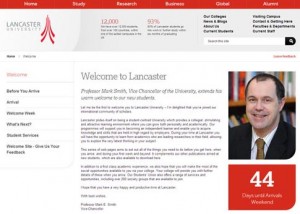Journalists, bloggers, editors and writers. They all want the same thing and the fame that comes with that thing.
The scoop.
They want the “scoop” on a popular news topic or subject. Perhaps they want to be first to deliver the story. Or maybe they are vying for that position as top editor, and scooping a really good story is the avenue to there. Yes, if they can report it first, they stand to impress their boss, get a (possible) raise and just be generally all around pretty impressive. Being first can be a good thing. Or can it?
There is one thing to make an error when you’re writing an article or making a post. We’ve all done it at least a time or two. But, can’t you feel that twinge of nauseous stomach pains when you find your error after you’ve gone to publish? Or worse yet, what about when someone else brings it to your attention? However, what can be even worse than these things is when you simply report bad or incorrect information without having investigated the story thoroughly or completely.
Just recently, this scenario happened with the infamous Twitter brand when a reporter on the Bloomberg news site pointedly stated in an article that there were over “55 million daily users on Twitter.” Impossible. This figure is not statistically so inconceivable. Although the Bloomberg article’s portion on this large number was retracted, it was too late to reach the other 1,096 Google search results bloggers who wanted eagerly to pick up keyword-rich, news type and financially motivated stories.
But is it to harmful to report incomplete information? Does anyone really suffer because you didn’t give all of the correct information? Is it really a big deal? Will anyone care?
Yes.
Companies spend quite a bit of money to update and maintain their sites. Giving customers incorrect information simply does not do anything for your credibility with them. Companies should take great care and great pains to ensure that they are providing not only the latest and greatest news but correct news for their readership. Check the facts and nuances of your story against other sites that you trust. Make sure that what you’re reporting on is accurate, verifiable and perhaps even blogged by other bloggers.
If it is your company’s goal to publish quality over timing, then yes it does matter. If it is your company’s goal to value substance over fluff, then again, yes it matters. Reporting less-than-accurate information can be excused once or maybe even twice….perhaps. However, it is far more important to check the validity of claims and the realistic nature of your story. It’s also a good idea to “think” about it before publishing it as well. Consider that the article originally said 55 million visitors a day. Again, that’s impossible. Read the reasons in this article written by John Volpe of Social Sphere Strategies on why it is impossible. He basically uses common knowledge and deductive reasoning and a few statistics to prove his point.
What does your company do when there are big errors like this made in their reports? What damage control systems are in place to fix it for you? What could have been done differently in this situation besides doing a follow-up article?
I am a freelance writer, blogger and professional motivational speaker. I primarily focus on business content, offering my clients strategic marketing strategies for their businesses. I have been an entrepreneur for over 13 years, after having worked extensively in corporate America.


